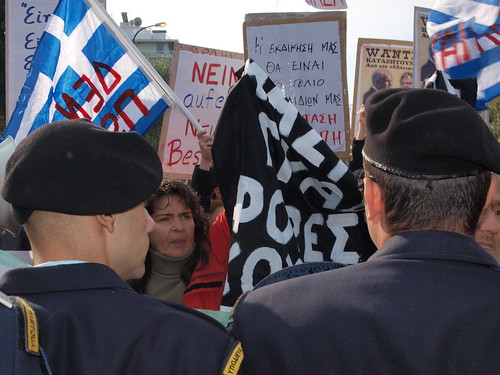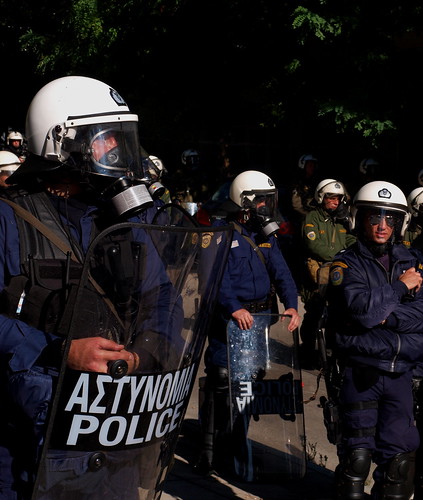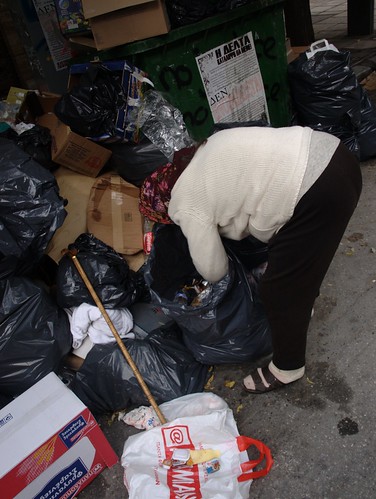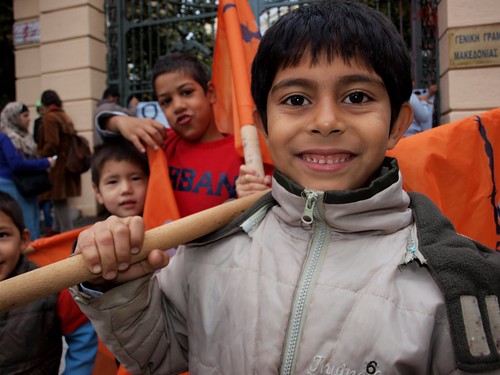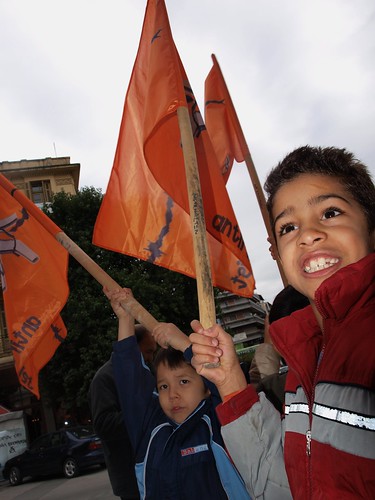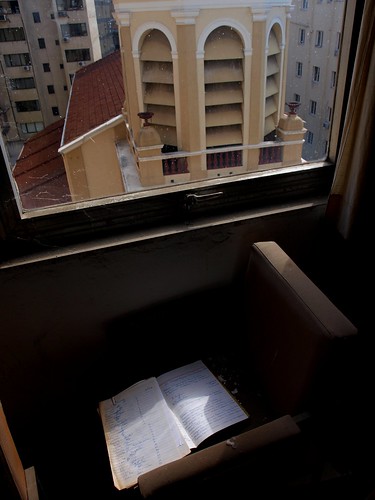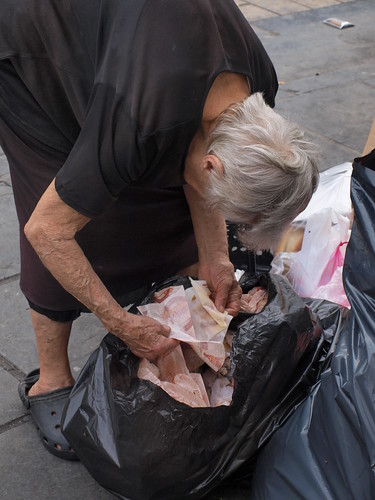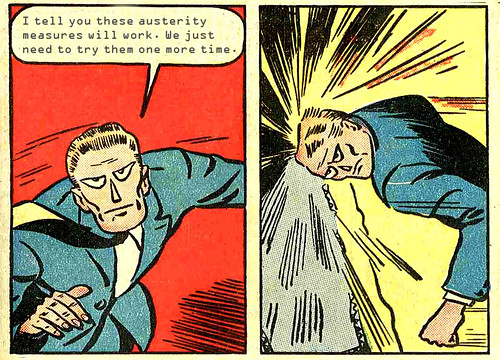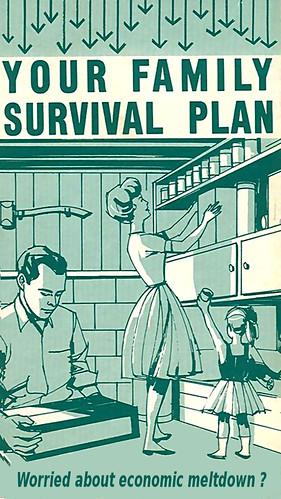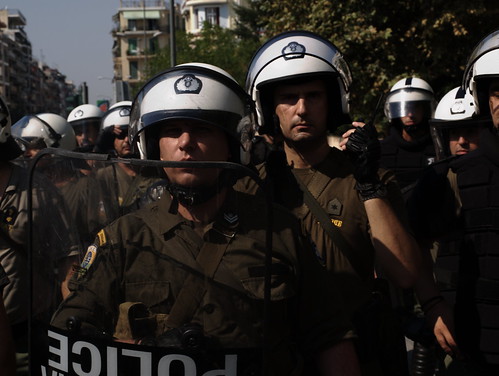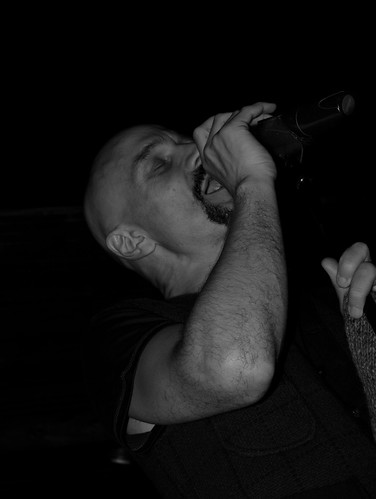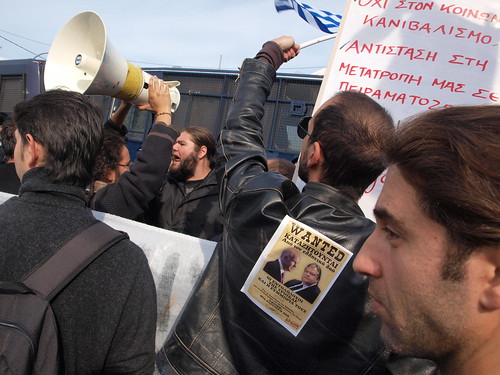
It's not often you get to see history made in front of your very eyes, however, that is exactly what I witnessed yesterday during the protests here in Thessaloniki that saw the cancellation of the city's annual military parade and forced the president of Greece to flee the area along with the country's defence minister.
To those unfamiliar with the institution, 28th October is a national holiday in Greece and every year towns and neighbourhoods organise parades to honour those who fell while fighting an Italian invasion in 1940. The celebration is known as No day after the refusal by Athens to allow Mussolini's army to enter Greek territory and is a day loaded with signifigance for many Greeks, akin to Remembrance Day in terms of the hold it has on the national consciousness so the fact that the parade was abandoned and those present refused to let the army march is an unprecedent event. It's almost as if bystanders flooded Whitehall during Remembrance Sunday and forced David Cameron and the rest of the cabinet to flee.
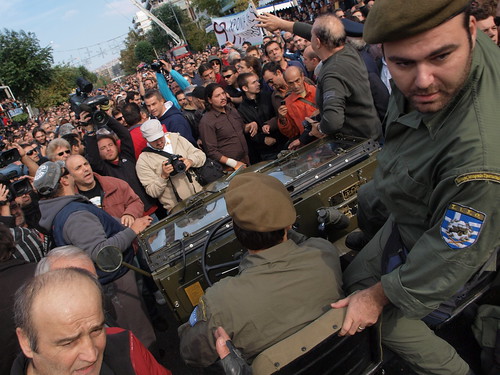
While over the last few years people have started to use 28th October events to air grievances the numbers have been small and many other Greeks have found such incidents an insult to the memory of the war dead. All that changed yesterday to surprise and amazement of most involved. For the country's political leadership it signalled the end of an era when they could command the loyalty (sometimes grudgingly given) of their electorate and showed them definitively that they are no longer welcome in any sphere of public life.
Also for those who organised protests the reaction of the crowds took them by surprise, none expected that ordinary people would react in this way and close down the parade, many of them wandered round with huge smiles on their faces looking somewhat dazed, like kids who've been told in June that Christmas Day has been moved up to today.
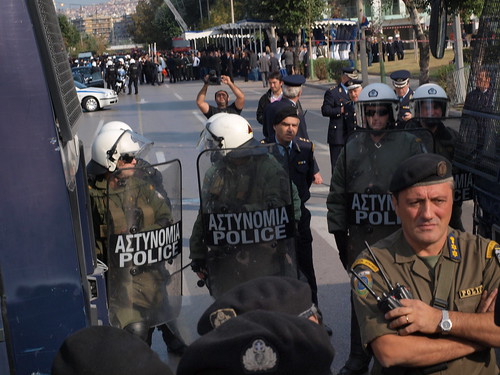
The police also were caught on the hop, unsure of how to deal with mass of people that included pensioners, small kids as well as political activists and unruly football fans. Despite being given orders to disperse the crowd by the minister of defence Panagiotis Beglitis, local commanders kept their response low key, realising the use of tear gas and percussion grenades (the usual police respone to mass unrest) could have catastrophic results in such a tense situation. Instead they allowed the protesters through police lines so they could continue their own people's parade that cheered on all non-military units that marched through.
There were some clashes when army reservists taking part in the military parade tried to force their way through leading to fist fights with protesting football fans who lashed back (see video below). Thankfully, cooler heads prevailed on both sides and no one was seriously injured.
When I got on the internet I saw that similiar protests were taking place across the country, even in small towns not noted for their radicalism, in most places the presence of politicians acted as trigger for people to boo, jeer and throw objects.In many cases mayors and MPs had to be hustled away under heavy police guard lest locals let their anger get the better of them.
On the other hand the mainstream Greek media was mixed in its response to the day's events, TV channels such as Skai, Mega and Star filled their screens with indignant politicians and commentators who accused those involved in the protests from being everything from fascist dupes to mindless hooligans.Yet even with this heavy handed orwellian spin doctoring the images that showed town after town demonstrating and the street of Thessaloniki teeming with protesters clashed with the official line which claimed that all of this was the work of a few hundred political malcontents.
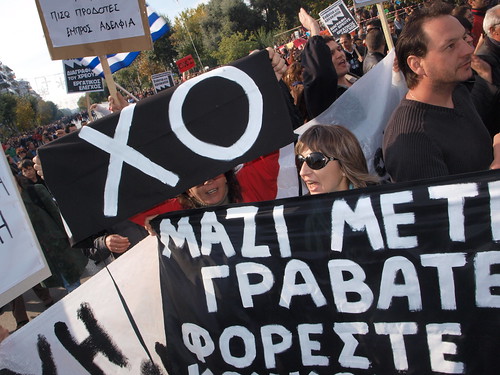
It is a sign of how hunkered down the country's political leaders are that they have started believing their own propaganda about protesters being a small group of malavolent trouble makers being used by dark (and always unnamed political forces). On the other hand the sheer scale of the demonstrations has finally woken some up to the fact that that they are loathed and dispised by people from across the political spectrum.
For the more conservative elements Papandreou's acceptance of foreign oversight is nothing less than treason, for those on the left the government has failed to protect the poor and the vulnerable and is happily dismantling what passes for a welfare state in Greece. For nearly everyone the latest austerity measures have hit them hard coming as they do at a time of falling incomes, rising prices and skyrocketing unemployment.
The writing is on the wall for the current political system as it is incapable of producing a credible alternative to the present set up and in such a situation the vacuum that will be created by the fall of the government may lead to turmoil and conflict as groups united only in their common hatred of PASOK clash with each other.
